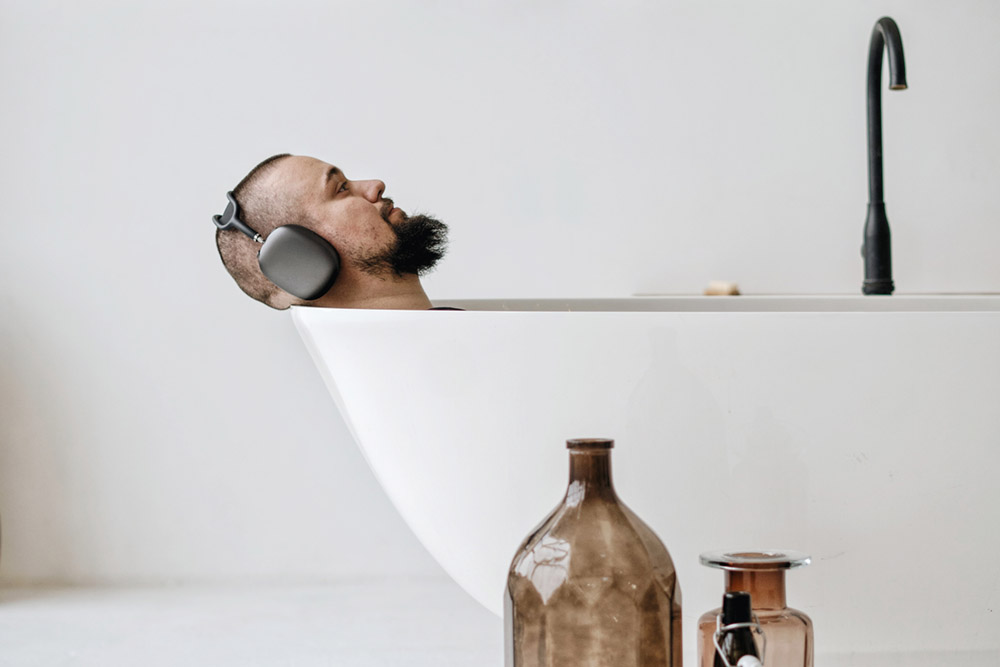
How Bathing in a Tub for 10 Minutes Changes Your Mindset (& Much More!)
Leah Zerbe, MS, NASM-CPT, NASM-CES via Dr. Axe – There is something so therapeutic about slowing down and taking a warm bath, but the benefits of bathing in a tub go far beyond a few minutes of relaxation. Emerging research suggests creating a regular tub bathing routine could play a role in transforming your health.
Here are some incredible benefits of taking a bath that may inspire you to schedule some extra soak time!
Habitual Bathing = 28% Lower Risk of Cardiovascular Disease
You may have heard about cold shower benefits, but if the thought of that makes you shiver, consider a warm bath instead. A landmark 2020 studyinvestigating the effects of habitual bathing in 30,000 people in Japan over a nearly 20-year period found that regular tub time reduced the risk of cardiovascular disease by 28 percent.
In the study, the frequency of baths mattered, but the temperature did not.
Those who enjoyed warm, lukewarm or hot baths “almost every day” received the most cardiovascular protection compared to those who only took sporadic baths throughout the week. Interestingly, the temperature of the water was not a factor, although most bathers in Japan soak in baths 104 to 107 degrees Fahrenheit.
Daily Baths Are Linked to Lower Stroke Risk
The same Heart study looking at Japanese bath habits also found a link between daily bathing and stroke risk, with those taking a bath every day having a 25% lower risk of stroke compared to people who bathed zero to two times a week.
Still, researchers note that hot baths can cause dizziness and issues in people with low blood pressure and said caution is needed, along with more research on the potential benefits of taking a bath in cooler water.
Evening Baths = Better Sleep
One of the benefits of taking a bath in the evening includes better sleep. One study looked at the effects of evening bathing on two groups:
- People 65 to 83 years old
- People 17 to 22 years old
Younger adults reported feeling warmer, while older study participants noted falling asleep more quickly and getting higher quality sleep.
Interestingly, researchers noticed less body movement during the first three hours of sleep, suggesting that a bath before sleep enhances the quality of sleep, particularly in the elderly.
A pre-bedtime bath can also help dilate the skin’s blood vessels, which can help the body release excess heat for more comfortable sleep.
If you need more reasons to take a bath, consider these other health benefits of carving out more tub time:
- Better breathing
- Reduced inflammation and glucose control
- Increases in body heat can trigger the brain to release more depression-fighting serotonin
Benefits of Baths vs. Showers
Although tub bathing is popular in Japan, showering is still the most common form of bathing around the world. This is significant because when a team of researchers compared showering versus immersion bathing in warm water for 10 minutes, striking perks emerged for tub bathers.
Immersing yourself in warm water induces vasodilation and increases blood flow, which carries more oxygen and nutrients to the rest of the body. As you can imagine, this leads to all sorts of improvements in:
- Fatigue
- Stress
- Pain
- Skin
- Mental health
Interestingly, tub bathers also experienced less:
- Tension and anxiety
- Anger and hostility
- Depression and dejection
There are bath benefits you won’t get when taking a shower. Researchers explain that immersion bathing — not shower bathing — exerts hyperthermic action that induces increased blood flow and helps flush out more metabolic waste, helping people feel better both physically and mentally.
How to Take Your Bath to the Next Level
- Add a cup of epsom salt to your bath water for a magnesium-rich detox boost.
- Avoid using commercial bath bombs, bubble baths and soaps that contain “fragrance” or “fragrance oils” on the label. Synthetic scents are common in bath products, and ingredients have been linked to hormone imbalances, asthma and even certain cancers.
- Consider making your own homemade bubble bath with calming lavender and chamomile.
- Practice diaphragmatic breathing. Take this time to relax and reconnect with your breath. On each inhale, picture your diaphragm muscle drawing down as your lungs fill with air. Let your belly relax and rise with each inhale, and lower with each complete exhale.
Final Thoughts
- Tub, or immersion, bathing is an ancient form of hydrotherapy with a host of health benefits.
- Bath benefits include better sleep, improved stress hormone profile, lower risk of heart attack and stroke, pain relief, and more.
- To add to your bath’s detoxifying effects, add a cup of epsom salt to your bathwater, but skip commercial scented bubble baths and “bath bombs” that contain concerning chemicals.
To read the original article click here.
For more articles from Dr. Axe click here.






